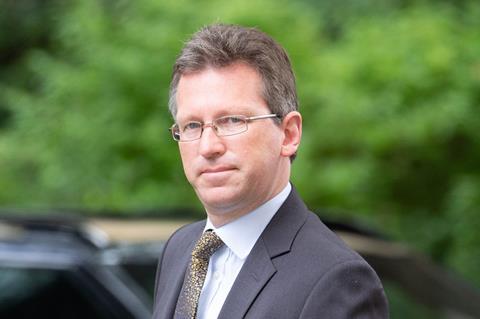Government plans to restrict terrorists’ access to civil legal aid have been described as illogical by MPs, with a former attorney general saying he is ‘frankly worried’ by the proposals.
The National Security Bill will prevent individuals convicted of a terrorist offence after February 2001 from obtaining civil legal aid for up to 30 years, though they can apply to the Legal Aid Agency for an ‘exceptional case determination’.
Home secretary Priti Patel said the measures ‘will prevent the exploitation of the UK’s civil legal aid and civil damage systems by convicted terrorists by stopping public funds being given to those who could use them to support terror’.
‘When an individual commits an act of terrorism, they are rejecting the democratic state that provides the benefit of civil legal aid and it cannot be right that the same individual can then go on to receive civil legal aid funded by that very state,’ she said at the bill’s second reading yesterday.
However, former attorney general Sir Jeremy Wright said he is ‘frankly worried’ by the restrictions on civil legal aid in the bill, adding: ‘I do not think we have ever before contemplated determining someone’s eligibility for civil legal aid based on previous criminal behaviour.’
He asked: ‘Is there any logic in leaving convicted terrorists eligible for criminal legal aid in relation to future allegations against them, as they will rightly remain if this bill passes, but ineligible for civil legal aid?’

Wright also said: ‘There does not seem to me to be very much difference on a moral basis between terrorism offences and other serious criminal offences, such as child murder, serial rape or any number of others we might think of, to explain why only offences of terrorism would merit the removal of civil legal aid eligibility’.
Conservative MP David Davis similarly said the legal aid restrictions would ‘run the risk of the farcical situation where someone convicted of terrorism-related offences perhaps 20 years ago would be unable to rely on civil legal aid in seeking an injunction against a domestic abuser’.
Justice committee chair Sir Robert Neill also warned that the proposals would impact rehabilitated terrorist offenders, which he said ‘could be counter-productive and not consistent with our commitment to access to justice’.
Neill’s concerns echo those of the independent reviewer of terrorism legislation Jonathan Hall QC, who said last month that the plans carry a risk of ‘unintended consequences’.
‘No released terrorist offender is going to reoffend merely because their access to civil legal aid is restricted,’ Hall said in a briefing note to parliamentarians. ‘But legal advice and assistance is relevant to securing help on housing, debt and mental health. A homeless terrorist offender, or one whose mental health needs are unaddressed, will present a higher risk to the public.’
Hall also said that the government’s proposals marked ‘the first time that parliament has been asked to consider automatic symbolic restrictions on offenders convicted under terrorism legislation’.
‘If enacted, terrorist offenders are to be treated differently from other criminal offenders not on the basis of risk, but something else,’ he added. ‘If this principle is accepted, it may be asked why future legislation should stop at restrictions on civil legal aid and not apply to other civic payments provided in cases of need, such as housing benefit.’
Labour MP Maria Eagle said civil legal aid eligibility has never been ‘dependent on the nature of any previous conviction of the applicant in a blanket ban and certainly not whether they had been convicted of a particular type of offence in the past’. She asked the government to ‘consider whether introducing this novel way of determining eligibility for civil legal aid is the right way forward’.
‘One can always think of other types of offenders who perhaps do not “deserve” to get civil legal aid,’ Eagle added. ‘My concern is that introducing such a way of looking at eligibility may have a much broader implication that is not entirely good.’
Home Office minister Damian Hinds later said the legal aid proposal ‘applies only to [terrorist] offences involving a sentence of more than two years’ and emphasised that individuals could apply to the Legal Aid Agency for exceptional case funding.
This article is now closed for comment.



























8 Readers' comments